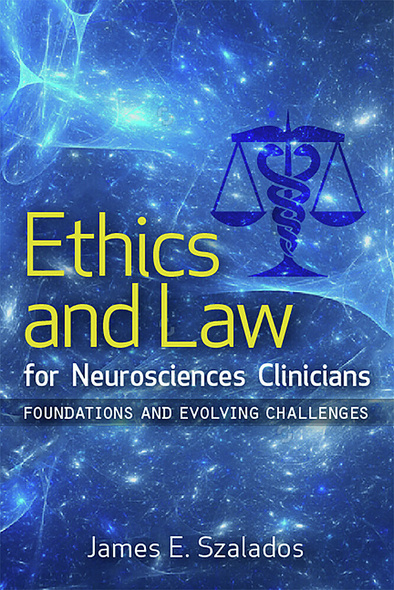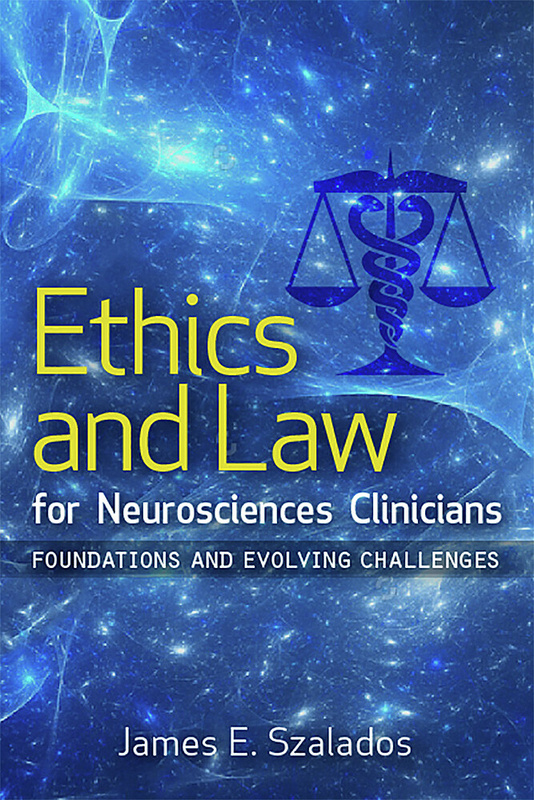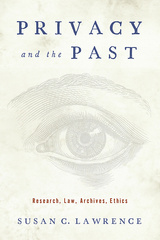Ethics and Law for Neurosciences Clinicians
Foundations and Evolving Challenges
Rutgers University Press
The brain represents the final frontier in medical sciences. Clinical neurosciences include the subspecialties of neurology, neurosurgery, neuro-imaging, cerebrovascular interventional specialties, neurocritical care, and the allied specialties in pharmacy and nursing. The first lens through which we see our patients is the clinical perspective; however, the complexity of neurosciences and the rapidity of the advances in these subspecialties require that clinicians not lose sight of the personhood of the patients, the professionalism required in the care of these complex patients, or the regulatory environment in which we practice. Science and technology are advancing more rapidly than regulations or the law can interpret and integrate them into a supportive or regulatory framework. Thus, morality, ethics, and the law comprise the final lens through which we approach complex patient management issues, frame our communications with patients and families, and evaluate the risks and potential benefits of new technology. Ethics and Law for Neurosciences Clinicians is written for all clinicians in the neurosciences specialties to examine and re-examine the ethical and legal implications of advances in clinical neurosciences.
Medical, ethical and legal issues interact acutely in neurological patients, and Dr. Szalados’s book on these issues is vital reading for the administrators, nurses, physicians, lawyers and ethicists who care for them.
JAMES E. SZALADOS, MD, MBA, MHA, Esq. has over thirty years of training and clinical experience in medicine and over a decade of experience as an attorney. The author of dozens of articles and chapters on diverse aspects of healthcare law, Dr. Szalados is also a professional speaker and educator, and regularly participates in the education of attorneys and physicians on medical-legal matters.
Disclaimer
Dedication
Preface
I. Morality, Ethics, and the Law: An Overview of the Foundations of Contemporary Clinical Ethical Analysis
II. Case Studies: Ethical and Legal Challenges in the Care of the Neurologically Injured Critically Ill Patient
III. Civil Law and Liability: The Law of Medical Malpractice
IV. Legal Reasoning, Legal Process, Legal Proof and Why it is Confusing to Clinician Scientists
V. Regulatory Law and the Clinical Practice of the Neurosciences
VI. Digital Medicine and the Data Revolution Managing Digital Distraction and EMR Liability While Leveraging Opportunities in Teleneurology and Telecritical Care
VII. Developing and Leading a Sustainable High Reliability High Performing Unit: Theories of Quality, Teamwork, Medical Error and Patient Safety
VIII. Neurolaw and the Integration of Neuroscience, Ethics, and the Law: The New Frontiers
IX. Conclusions and Afterword
Acknowledgements
About the Author
Index
Dedication
Preface
I. Morality, Ethics, and the Law: An Overview of the Foundations of Contemporary Clinical Ethical Analysis
II. Case Studies: Ethical and Legal Challenges in the Care of the Neurologically Injured Critically Ill Patient
III. Civil Law and Liability: The Law of Medical Malpractice
IV. Legal Reasoning, Legal Process, Legal Proof and Why it is Confusing to Clinician Scientists
V. Regulatory Law and the Clinical Practice of the Neurosciences
VI. Digital Medicine and the Data Revolution Managing Digital Distraction and EMR Liability While Leveraging Opportunities in Teleneurology and Telecritical Care
VII. Developing and Leading a Sustainable High Reliability High Performing Unit: Theories of Quality, Teamwork, Medical Error and Patient Safety
VIII. Neurolaw and the Integration of Neuroscience, Ethics, and the Law: The New Frontiers
IX. Conclusions and Afterword
Acknowledgements
About the Author
Index






